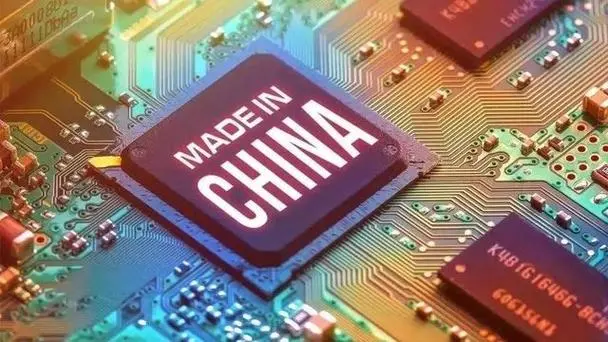
Recently, China cancelled 240 billion chip orders, and now the significant impact of this news on the global chip market is slowly being released. Behind this number is the result of Biden's restrictions on Chinese companies. However, for chip giants such as Qualcomm, Intel, and NVIDIA in the United States, they face a more serious problem: who else can chips be sold to?
With the rapid rise of Chinese technology companies such as Huawei, Biden in the United States has felt a certain threat and challenge, and has launched a series of crackdowns and sanctions against Chinese companies. In order to comprehensively prevent the development of Chinese technology enterprises, Biden not only revised the chip ban, but also formed an alliance with Japan and the Netherlands to pursue and intercept Chinese enterprises. These restrictive measures have greatly restricted and severely affected the import of advanced chips by Chinese enterprises, leading to significant changes in the global chip market.
In the first half of 2023, the number of chips imported by China decreased by 51.6 billion compared to the same period last year. In terms of amount, the amount of imported integrated circuits in the first half of the year was 33.3 billion US dollars (approximately 240 billion yuan) less than the same period last year, a year-on-year decrease of 17.0%. This means that Chinese companies cancelled 240 billion chip orders in the first half of the year. Behind this number is the result of Biden's restrictive measures against Chinese companies.
In recent years, the US government has further expanded its export controls on Chinese chips, and Chinese companies are accelerating their development path towards "de beautification". This poses a very serious problem for chip giants such as Qualcomm, Intel, and NVIDIA: who can chips be sold to? These giant companies hold a pivotal position in the global chip market, but as the number of imported chips by Chinese companies decreases, their sales have also been greatly affected. The CEOs of Intel, Qualcomm, and NVIDIA, the three major chip giants in the United States, visited Washington for talks with US government officials and lawmakers, hoping to lobby the Biden administration to abandon the introduction of new chip export restrictions to China. Intel CEO Pat Kissinger bluntly reminded the US government that so far, the US restrictions on China have not achieved the expected results, Instead, it has restricted the development of American companies' business in China. He also warned that without orders from China, Intel's plan to build the "world's largest semiconductor production base" in Ohio may be cancelled. Intel's CEO is not afraid to use domestic investment plans as a threat. If these companies' products cannot be exported to China, then the "world's largest chip manufacturing base" they invest in and build will not need to be built.
China is not only one of the world's largest chip consumer markets, but its terminal position in semiconductor components is also irreplaceable. In this situation, the Biden government's increased restrictions on China will further affect Intel's business in China. The Chinese market is crucial not only for Intel, but also for other American companies. Anyway, this is a reality that the Biden administration has to acknowledge. Originally, the Biden administration intended to use this as a means to launch a killing campaign against China, but it was unexpected that the first person to oppose it was internal personnel. However, to put it another way, although the United States currently has an advantage in the chip industry, this advantage will not always exist. They are maliciously consuming their leading technology position and are likely to reap the consequences in the future, as any technology will eventually be breached. The blockade between the United States and Western countries will actually only make their own situation more embarrassing.
On this issue, these giants need to find new customers and markets to replace the Chinese market. At the same time, they also need to re-examine their business models and strategies to cope with growing market competition and changes. For Chinese enterprises, it is necessary to maintain a sense of crisis at all times. Only by increasing independent research and development efforts and mastering core technologies in their own hands, can the development of Chinese enterprises in the international market not be constrained by others!

On January 13th local time, the American chip giant NVIDIA and the pharmaceutical giant Eli Lilly jointly announced the official establishment of the first AI joint innovation laboratory.
On January 13th local time, the American chip giant NVIDIA …
On January 9, 2026, a subpoena from the U.S. Department of …
When Trump announced on TruthSocial a 25% tariff on Iran's …
Recently, according to reports from KGO TV of ABC and CalMa…
On January 13, 2026, the STOXX Europe 600 Index closed 0.2%…
A recent major trade policy adjustment proposed by the Unit…